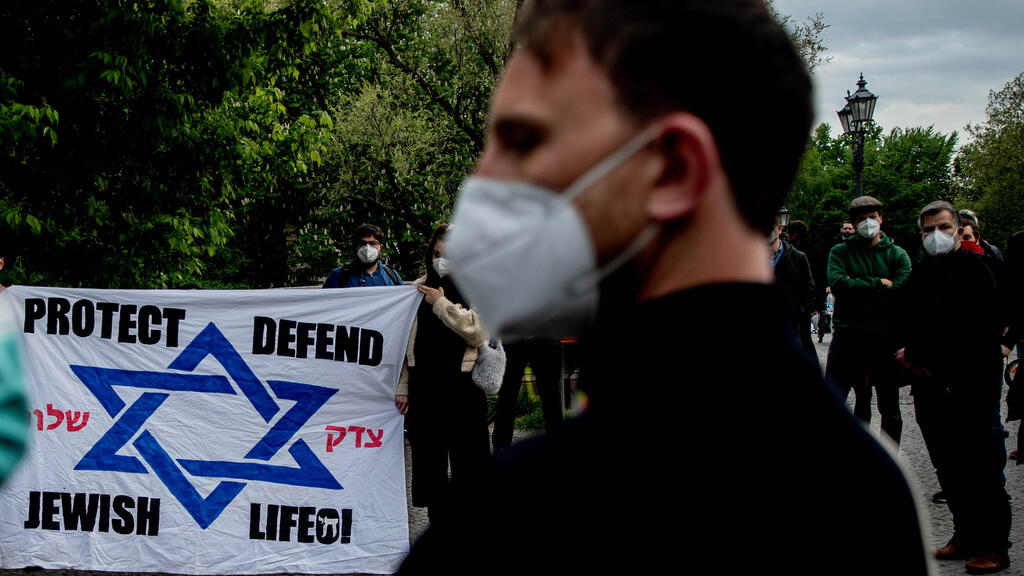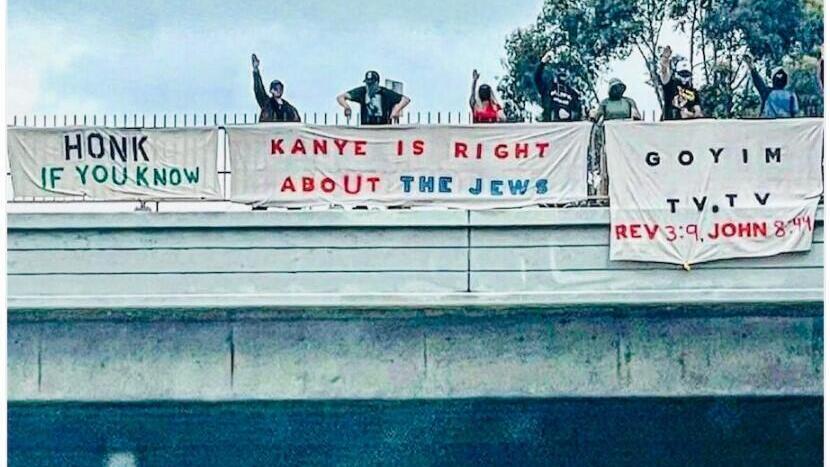Getting your Trinity Audio player ready...
Hateful rhetoric on social media and online echo chambers are fueling a spike in antisemitism in the United States, experts believe.
Two armed suspects were arrested late Friday night for allegedly making threats against synagogues in New York City, the Metropolitan Transit Authority announced Saturday.
The suspects – who were identified as Matthew Mahrer, 22, and Christopher Brown, 21 – were apprehended at Penn Station. One of them reportedly carried a swastika armband at the time of his arrest, according to the Stop Antisemitism watchdog organization. In addition, the duo was in possession of a firearm, 30 rounds of ammunition and a large hunting knife.
The UK-based Community Security Trust (CST), a British charity that protects Jews from antisemitism and related threats, first picked up on the threat on Twitter.
Dave Rich, director of policy at CST, said that the organization has a team of researchers working to identify threats against the Jewish community via global platforms.
“There was an anonymous account and it appeared to us that it was probably located on the East Coast of the U.S.,” Rich explained. “We have very good relations with various Jewish community partners and counterpart security networks in the US. So, we found it on Friday and passed it to them on Friday and it appears that it went to law enforcement and they found these two guys.”
The incident reflects the types of threats currently faced by Jewish communities across the globe, he said.
4 View gallery


Pro-Israel demonstrators attend a rally denouncing antisemitism in Manhattan, May 23, 2021
(Photo: AFP)
“It’s quite often from lone individuals, it’s not organized and it’s something that can be very difficult to identify ahead of time,” Rich said. “But it’s also very much an online movement, where people who are moving toward potentially attacking a Jewish target get so much of their radicalization and encouragement from this online subculture that there’s always an online footprint somewhere.”
The arrests are the latest in a series of high-profile antisemitic incidents in the United States and come on the heels of threats made against synagogues in New Jersey earlier this month. A teenager holding extremist Islamist views, who had pledged allegiance to the leader of the Islamic State group, was charged by federal prosecutors over threats he made.
FBI Director Christopher Wray warned last week that the Jewish community in the US is “getting hit from all sides” and “desperately” needs more support to counter an uptick in attacks. According to Wray, roughly 63% of religious hate crimes in the country were motivated by antisemitism, despite Jews making up only about 2.4% of the American population.
Wray added that threats linked to antisemitism had been “elevated to a national threat priority.”
Rich, of CST, believes there are several factors at play behind the spike in hatred targeting Jews. Among them is the rise of what he termed a global “extreme right-wing violent movement” that is seeking to attack a range of minorities and whose views are deeply rooted in antisemitic rhetoric. Each attack or attempted attack, he said, encourages the next one.
4 View gallery


Participants at a vigil against antisemitism gather in front of the a synagogue in Berlin, May 16, 2021
(Photo: EPA)
In addition, high-profile celebrities have been expressing or endorsing antisemitism on social media.
“Obviously, law enforcement is key but this whole movement exists online and it couldn’t exist in the way that it does if it weren’t for the different social media platforms that facilitate it,” Rich said. “It’s the online networking that is central to it and, really, governments need to get on top of regulating the way that these social media platforms operate and facilitate this kind of extremist networking.”
Shahar Eilam, a senior research fellow who heads the research project on contemporary antisemitism in the U.S. at Tel Aviv University’s Institute for National Security Studies (INSS), s that Jews in America are feeling increasingly under threat.
“There is a normalization of [antisemitic] discourse, of things that we weren’t used to hearing before,” Eilam said. “Things that would have once been limited to being spread in very specific groups and not found in the mainstream … are now being disseminated widely on social media.”
Eilam said that the INSS is currently researching antisemitism from a number of different vantage points, including from right, left, African American and Islamist groups. He argued that the mainstream media has so far mostly failed to provide in-depth coverage of the factors behind the surge in antisemitic sentiment.
4 View gallery


Pictures of the Goyim Defense League banners supporting Kanye West's comments about Jews
(Photo: Twitter)
Regarding recent statements made by Ye, formerly known as Kanye West, and basketball player Kyrie Irving, Eilam drew a connection to what he termed “Black supremacist ideas linked to Nation of Islam leader Louis Farrakhan as well as the Black Hebrew Israelites.”
“On the right there are populist and white supremacist factors at play,” Eilam added. “They also view the Jews from a conspiratorial viewpoint as harming the position of whites in the U.S. On the progressive left, there are beliefs that Jews belong to the privileged class, are white and therefore they represent a power that is harming minorities and other populations.”
There have been several attacks on synagogues across the U.S. in recent years, including most infamously the 2018 shooting at the Tree of Life synagogue in Pittsburgh, Pennsylvania, which left 11 people dead. Earlier this year, four people were taken hostage at a synagogue in Colleyville, Texas during a Sabbath service. All four emerged safe and the gunman was shot dead.


